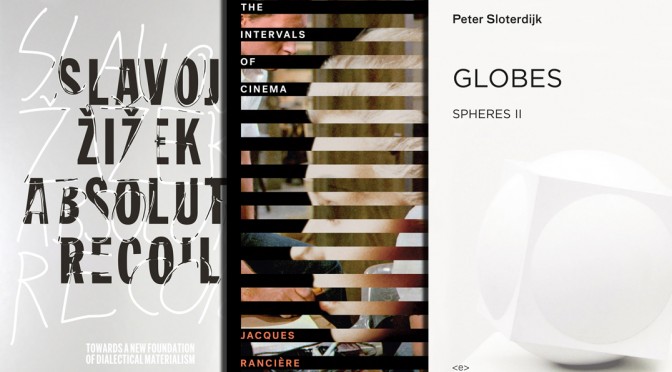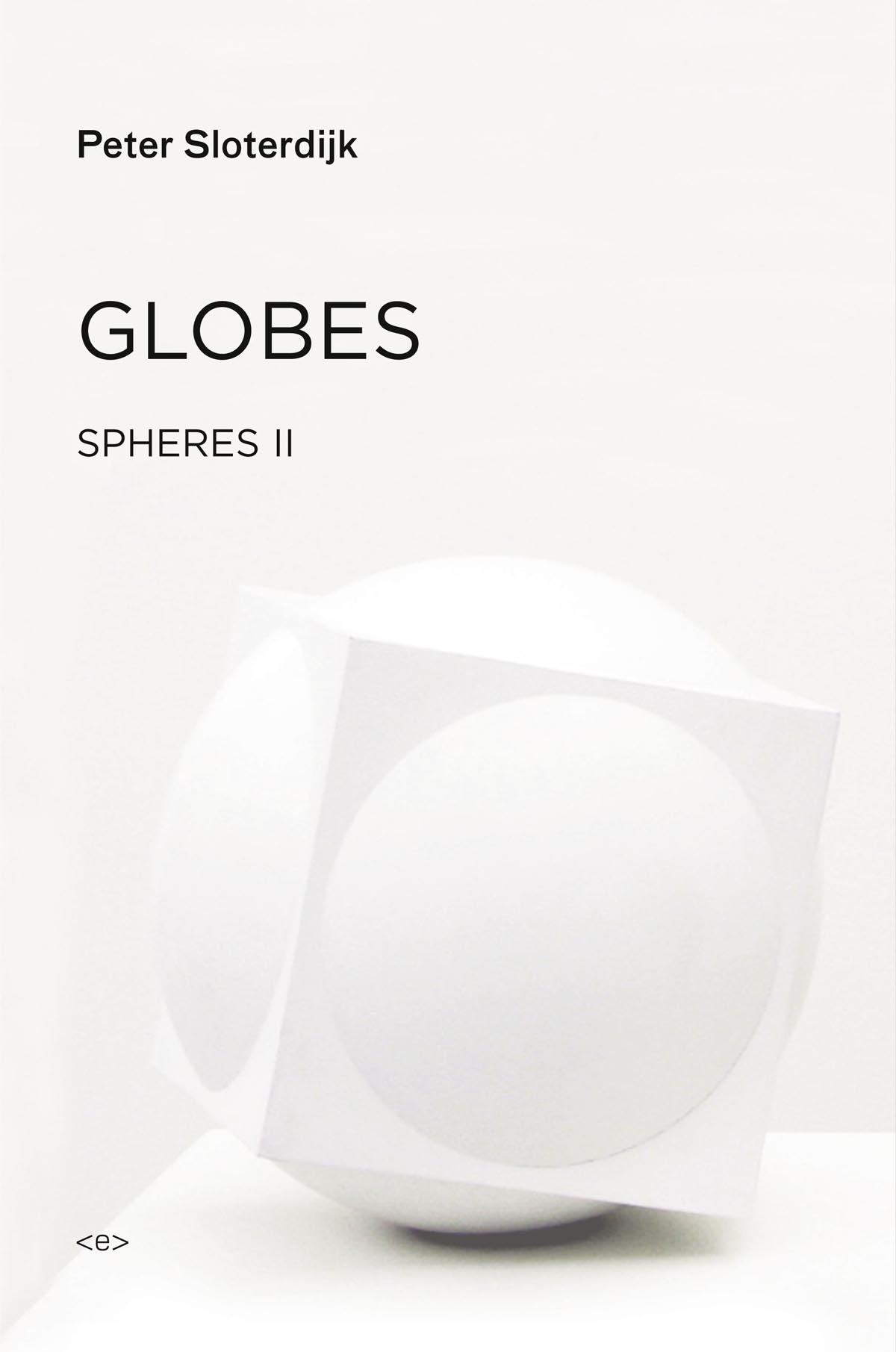Did we miss any? Tell us in the comments.
If you’re a publisher or an author with a forthcoming book, get included on future roundups by emailing tips@critical-theory.com.
Globes: Spheres Volume 2
By Peter Sloterdijk
“In Globes—the second, and longest, volume in Peter Sloterdijk’s celebrated magnum opus Spheres trilogy—the author attempts nothing less than to uncover the philosophical foundations of the political history—the history of humanity—of the last two thousand years. The first, well-received volume of the author’s Spheres trilogy, Bubbles, dealt with microspheres: the fact that individuals, from the fetal stage to childhood, are never alone, because they always incorporate the Other into themselves and align themselves with it. With Globes, Sloterdijk opens up a history of the political world using the morphological models of the orb and the globe, and argues that all previous statements about globalization have suffered from shortsightedness. For him, globalization begins with the ancient Greeks, who represented the whole world through the shape of the orb. With the discovery of America and the first circumnavigations of the earth, the orb was replaced by the globe. This second globalization is currently giving way to the third, which we are living through today, as the general virtuality of all conditions leads to a growing spatial crisis.”
Buy it here.
Absolute Recoil
By Slavoj Zizek
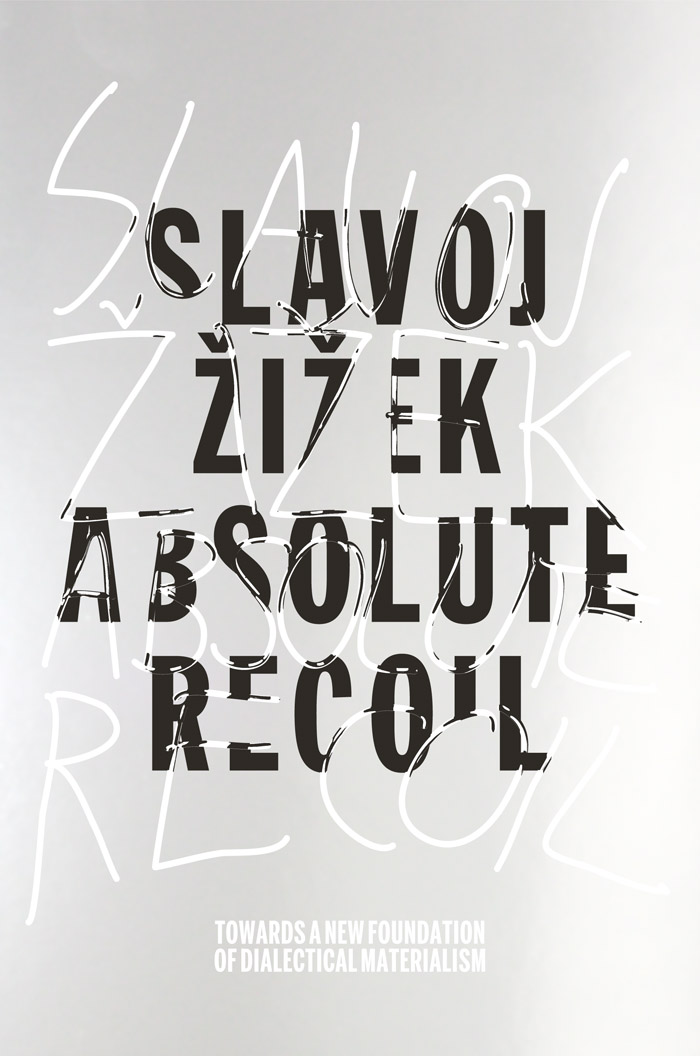
“Philosophical materialism in all its forms – from scientific naturalism to Deleuzian New Materialism – has failed to meet the key theoretical and political challenges of the modern world. This is the burden of philosopher Slavoj Žižek’s argument in this pathbreaking and eclectic new work. Recent history has seen developments such as quantum physics and Freudian psychoanalysis, not to speak of the failure of twentieth-century communism, shake our understanding of existence.
In the process, the dominant tradition in Western philosophy lost its moorings. To bring materialism up to date, Žižek – himself a committed materialist and communist – proposes a radical revision of our intellectual heritage. He argues that dialectical materialism is the only true philosophical inheritor of what Hegel designated the “speculative” approach in thought.”
Buy it here.
Radio Benjamin
By Walter Benjamin
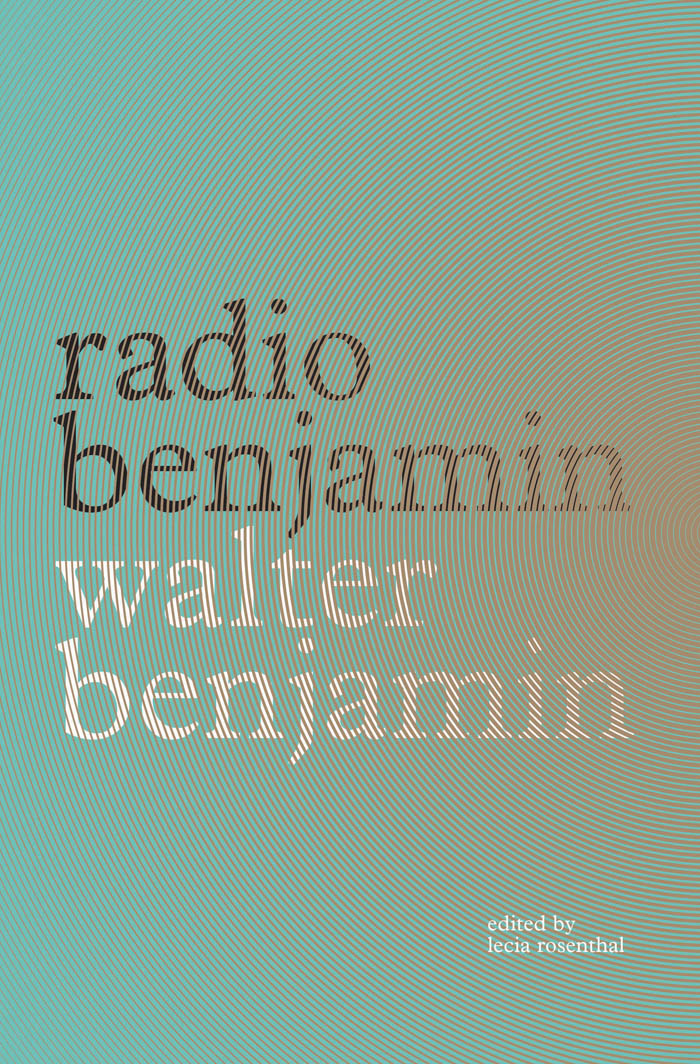
“Walter Benjamin was fascinated by the impact of new technology on culture, an interest that extended beyond his renowned critical essays. From 1927 to ’33, he wrote and presented something in the region of eighty broadcasts using the new medium of radio. Radio Benjamin gathers the surviving transcripts, which appear here for the first time in English. This eclectic collection demonstrates the range of Benjamin’s thinking and his enthusiasm for popular sensibilities. His celebrated “Enlightenment for Children” youth programs, his plays, readings, book reviews, and fiction reveal Benjamin in a creative, rather than critical, mode. They flesh out ideas elucidated in his essays, some of which are also represented here, where they cover topics as varied as getting a raise and the history of natural disasters, subjects chosen for broad appeal and examined with passion and acuity.”
Buy it here, or read the Critical-Theory review.
The World of Freedom
By Robert Nichols
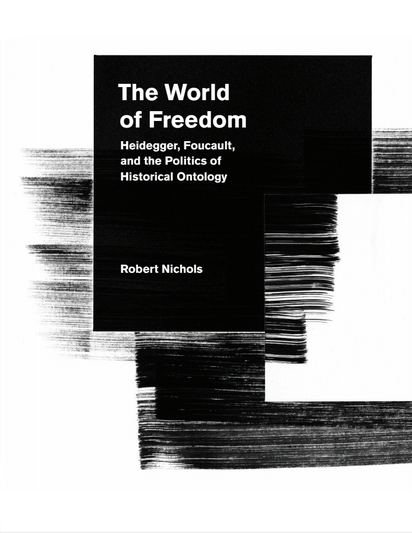
“Martin Heidegger and Michel Foucault are two of the most important and influential thinkers of the twentieth century. Each has spawned volumes of secondary literature and sparked fierce, polarizing debates, particularly about the relationship between philosophy and politics. And yet, to date there exists almost no work that presents a systematic and comprehensive engagement of the two in relation to one another. The World of Freedom addresses this lacuna.
Neither apology nor polemic, the book demonstrates that it is not merely interesting but necessary to read Heidegger and Foucault alongside one another if we are to properly understand the shape of twentieth-century Continental thought. Through close, scholarly engagement with primary texts, Robert Nichols develops original and demanding insights into the relationship between fundamental and historical ontology, modes of objectification and subjectification, and an ethopoetic conception of freedom. In the process, his book also reveals the role that Heidegger’s reception in France played in Foucault’s intellectual development—the first major work to do so while taking full advantage of the recent publication of Foucault’s last Collège de France lectures of the 1980s, which mark a return to classical Greek and Roman philosophy, and thus to familiar Heideggerian loci of concern.”
Buy it here.
The Spectre of Capital
By Joseph Vogl
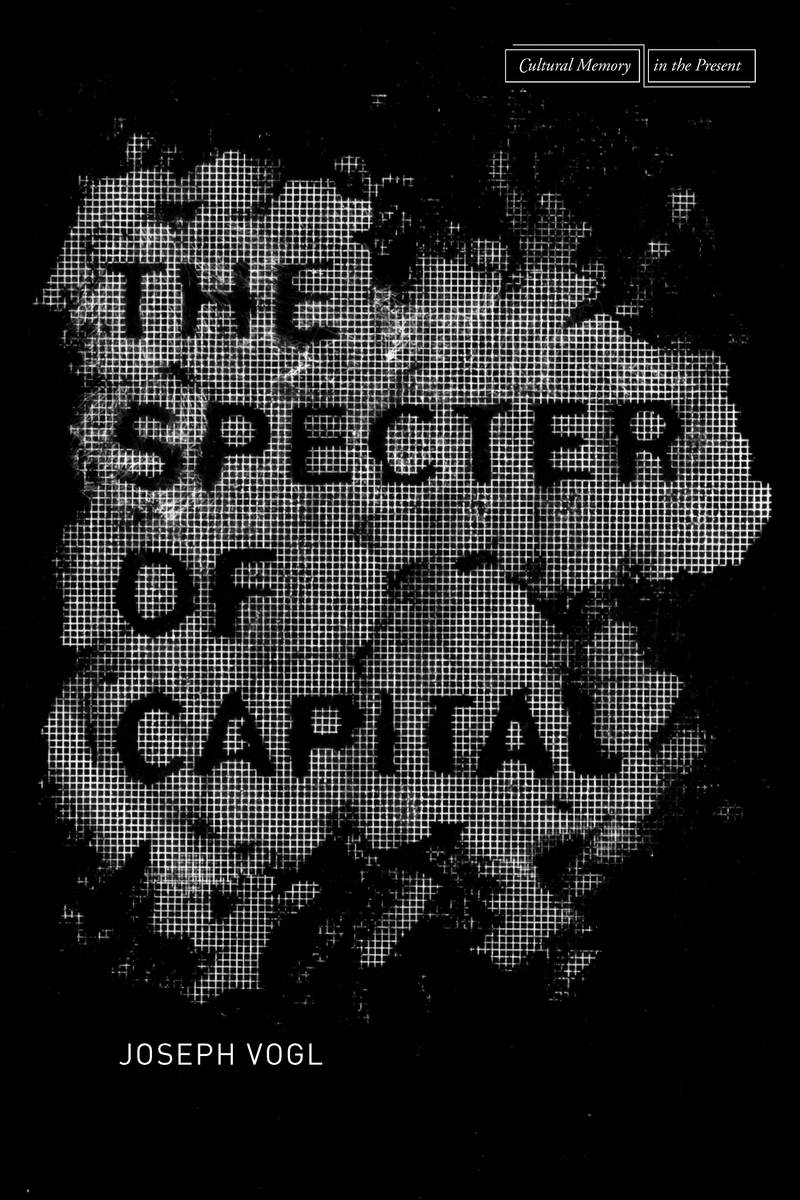
“In his brilliant interdisciplinary analysis of the global financial crisis, Joseph Vogl aims to demystify finance capitalism—with its bewildering array of new instruments—by tracing the historical stages through which the financial market achieved its current autonomy. Classical and neoclassical economic theorists have played a decisive role here. Ignoring early warnings about the instability of speculative finance markets, they have persisted in their belief in the inherent equilibrium of the market, describing even major crises as mere aberrations or adjustments and rationalizing dubious financial practices that escalate risk while seeking to manage it.”
Buy it here.
The Intervals of Cinema
By Jacques Ranciere
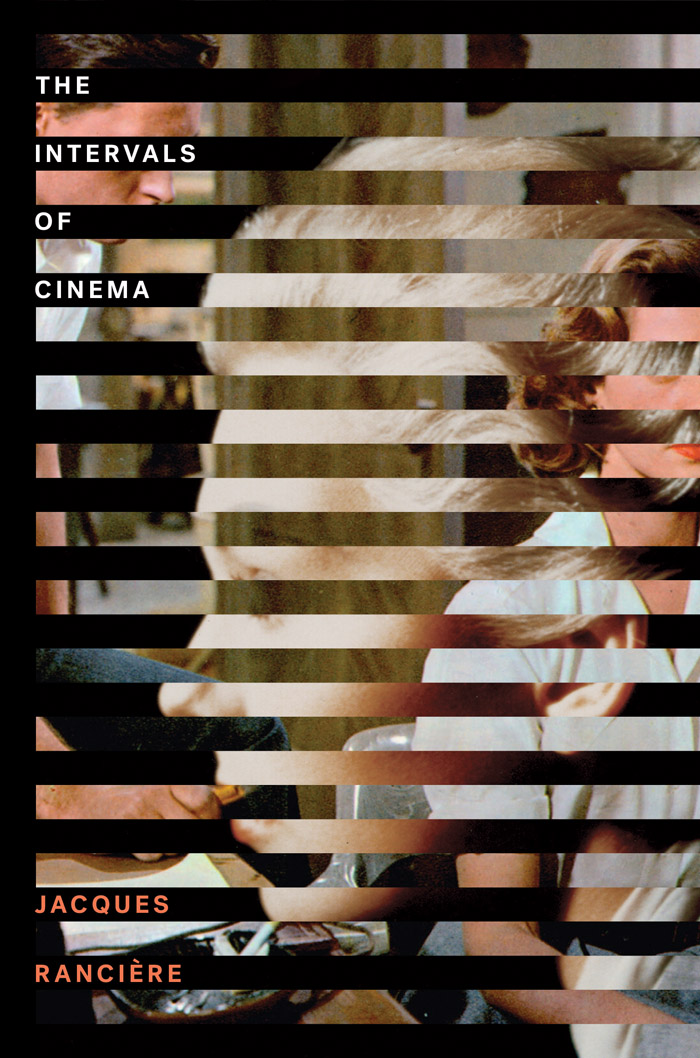
“Cinema, like language, can be said to exist as a system of differences. In his latest book, acclaimed philosopher Jacques Rancière looks at cinematic art in comparison to its corollary forms in literature and theatre. From literature, he argues, cinema takes its narrative conventions, while at the same time effacing literature’s images and philosophy; and film rejects theatre, while also fulfilling theatre’s dream.
Built on these contradictions, the cinema is the real, material space in which one is moved by the spectacle of shadows. Thus, for Rancière, film is the perpetually disappointed dream of a language of images.”
Buy it here.
The End of the World and Other Teachable Moments
By Michael Naas
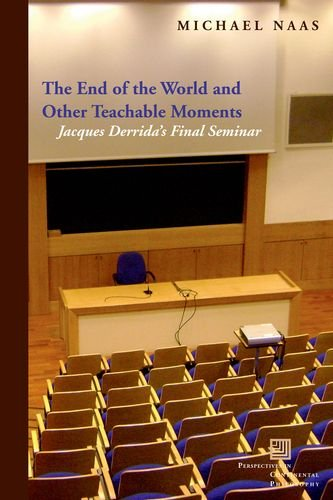
“The End of the World and Other Teachable Moments follows the remarkable itinerary of Jacques Derrida’s final seminar, “The Beast and the Sovereign” (2001–3), as the explicit themes of the seminar—namely, sovereignty and the question of the animal—come to be supplemented and interrupted by questions of death, mourning, survival, the archive, and, especially, the end of the world.
The book begins with Derrida’s analyses, in the first year of the seminar, of the question of the animal in the context of his other published works on the same subject. It then follows Derrida through the second year of the seminar, presented in Paris from December 2002 to March 2003, as a very different tone begins to make itself heard, one that wavers between melancholy and an extraordinary lucidity with regard to the end. Focusing the entire year on just two works, Daniel Defoe’s Robinson Crusoe and Martin Heidegger’s seminar of 1929–30, “The Fundamental Concepts of Metaphysics,” the seminar comes to be dominated by questions of the end of the world and of an originary violence that at once gives rise to and effaces all thing”
Buy it here.
Giorgi Agamben: Beyond the Threshold of Deconstruction
By Kevin Attell
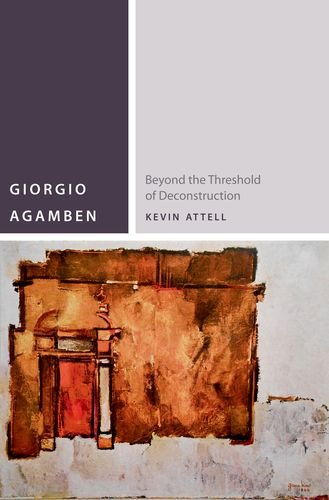
“Agamben’s thought has been viewed as descending primarily from the work of Heidegger, Benjamin, and, more recently, Foucault. This book complicates and expands that constellation by showing how throughout his career Agamben has consistently and closely engaged (critically, sympathetically, polemically, and often implicitly) the work of Derrida as his chief contemporary interlocutor.
The book begins by examining the development of Agamben’s key concepts—infancy, Voice, potentiality—from the 1960s to approximately 1990 and shows how these concepts consistently draw on and respond to specific texts and concepts of Derrida. The second part examines the political turn in Agamben’s and Derrida’s thinking from about 1990 onward, beginning with their investigations of sovereignty and violence and moving through their parallel treatments of juridical power, the relation between humans and animals, and finally messianism and the politics to come.”
Buy it here.
Nietzsche and the Becoming of Life
By Vanessa Lemm
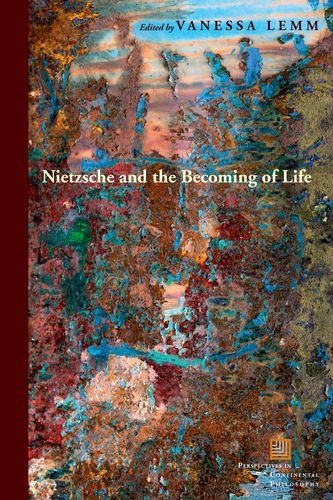
“Throughout his writing career Nietzsche advocated the affirmation of earthly life as a way to counteract nihilism and asceticism. This volume takes stock of the complexities and wide-ranging perspectives that Nietzsche brings to bear on the problem of life’s becoming on Earth by engaging various interpretative paradigms reaching from existentialist to Darwinist readings of Nietzsche.
In an age in which the biological sciences claim to have unlocked the deepest secrets and codes of life, the essays in this volume propose a more skeptical view. Life is both what is closest and what is furthest from us, because life experiments through us as much as we experiment with it, because life keeps our thinking and our habits always moving, in a state of recurring nomadism. Nietzsche’s philosophy is perhaps the clearest expression of the antinomy contained in the idea of “studying” life and in the Socratic ideal of an “examined” life and remains a deep source of wisdom about living.”
Buy it here.
Hegel: Key Concepts
By Michael Baur
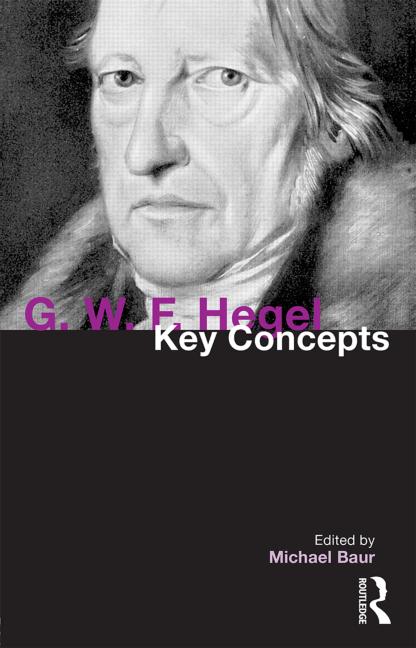
“The thought of G. W. F. Hegel (1770 -1831) has had a deep and lasting influence on a wide range of philosophical, political, religious, aesthetic, cultural and scientific movements. But, despite the far-reaching importance of Hegel’s thought, there is often a great deal of confusion about what he actually said or believed.
G. W. F. Hegel: Key Concepts provides an accessible introduction to both Hegel’s thought and Hegel-inspired philosophy in general, demonstrating how his concepts were understood, adopted and critically transformed by later thinkers. The first section of the book covers the principal philosophical themes in Hegel’s system: epistemology, metaphysics, philosophy of mind, ethical theory, political philosophy, philosophy of nature, philosophy of art, philosophy of religion, philosophy of history and theory of the history of philosophy. The second section covers the main post-Hegelian movements in philosophy: Marxism, existentialism, pragmatism, analytic philosophy, hermeneutics and French poststructuralism.”
Buy it here.

